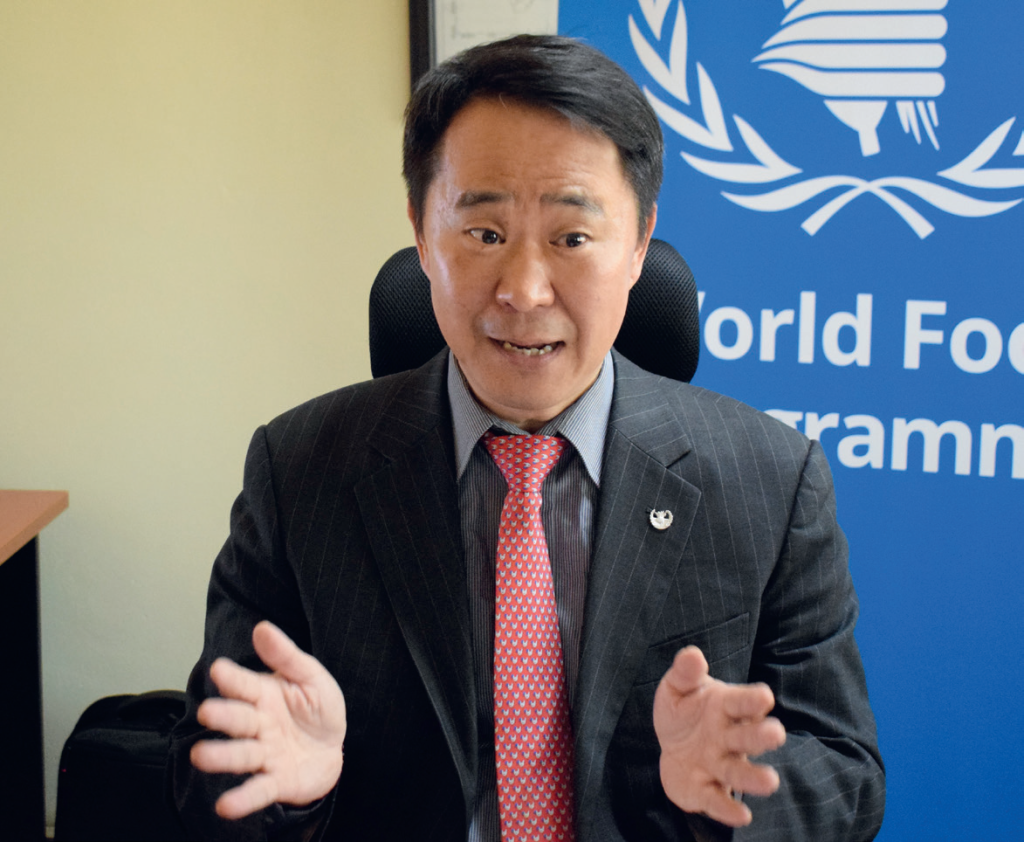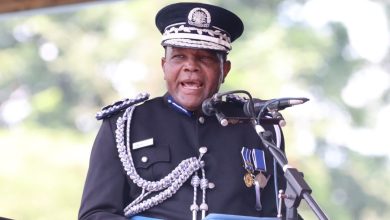Destined to fight hunger
In the early 1990s, a young backpacker travelled the world in search of answers that would define who he wanted to become.
With a little more than curiosity, courage and a dream, the Korean voyager wandered across continents, unknowingly edging closer to a life-defining moment.
That moment came in an unexpected place: On a boat in Malawi where he had nothing to eat, but sugarcane.
He recalls: “I had two big questions in my life. What kind of person do I want to be? And what kind of work do I want to do for the rest of my life?”

my life is an honour.. | Jacob Nankhonya
Unable to find life-changing answers at home, he turned to the rest of the world for clarity.
In 1994, the traveller from Asia arrived in the country where he would quietly begin to shape his destiny.
He boarded a boat for what turned into a three-day journey across Lake Malawi. With no money in his pocket, all he could afford was sugarcane—just enough to stave off the pangs of hunger, but scarcely enough to silence the sting he could not wish away.
“It was the first time I truly felt the pain of hunger. I fully understood it not just as an idea, but as a real, physical suffering,” he says.
On the third day, he recalls, a crew member noticed that the man was famished.
The boatperson hardly had enough to sustain himself—earning a modest salary and with a family to feed—he graciously offered the young traveller a meal.
“It was simple and inexpensive, but it changed everything,” says the recipient. “That act of compassion showed me that small acts of kindness can make a huge difference.”
The experience on the waves of Lake Malawi sparked something deeper than gratitude in the man.
After disembarking from the boat along the country’s largest lake, he visited a nearby village and saw a long line of people waiting not with despair, but with joy.
Curiously, he followed the queue to its end and discovered that they were waiting for food that was being distributed by the World Food Programme (WFP). It was a moment of awakening.
Seeing their smiles and hope, he realised, this is it—an aha moment that had defined his life until today.
“This is what I wanted to do,” he says.
“There may be many jobs in the world, but is there anything more meaningful than helping people overcome hunger?”
That day, he made a big decision—dedicating his life to fighting hunger.
The young man returned home, earned his degree and internships, gaining experience and gradually building a path into humanitarian work that would take him to over 80 countries.
This, is the story of one Hyong-Joon Lim the new WFP director and country representative in Malawi who joined the United Nations emergency food agency in 2002.
He worked as a junior professional officer in several countries before moving to WFP headquarters in Rome where he served as a donor relations officer in charge of Asia.
After two decades of scaling up the rungs of humanitarian work, the thrilled backpacker returns to Malawi as a leader of the very organisation that inspired his journey.
“It has been 30 years and to come back here, the place that changed my life, it’s an honour, a joy and a reminder of why I do what I do,” Lim states.
His journey testifies to how an act of selflessness can transform a life for the benefit of millions in need.
Lim now faces a colossal responsibility of ensuring that Malawians in need of urgent food support in Malawi gets the much-needed supplies on time.
This is a daunting task, with over a million Malawians facing chronic hunger.
The country is rising from drought-induced hunger that left about 5.7 million people in need of urgent food aid until last month, according to the Malawi Vulnerability Assessment Committee.
The food-insecure population includes about 55 000 refugees and asylum seekers at Dzaleka Refugee Camp, a repurposed prison for political dissidents designed to accommodate 10 000 to 12 000 people.
The country’s sole refugee camp welcomes about 190 new arrivals and 150 newborn babies every month.
WFP has appealed for international support as its funding cannot take the displaced community beyond July unless replenished.
The UN agency relies on donor support, which is running out fast as global aid taps dry up.
Sustaining food supply to the vulnerable community poses an early test for Hyong-Joon Lim and his mission, which got underway with sights of desperate persons queueing for food.
Perhaps he is just the right man showing up at the right moment when food-insecure Malawians and the refugees need him most to beat the pain of hunger.





